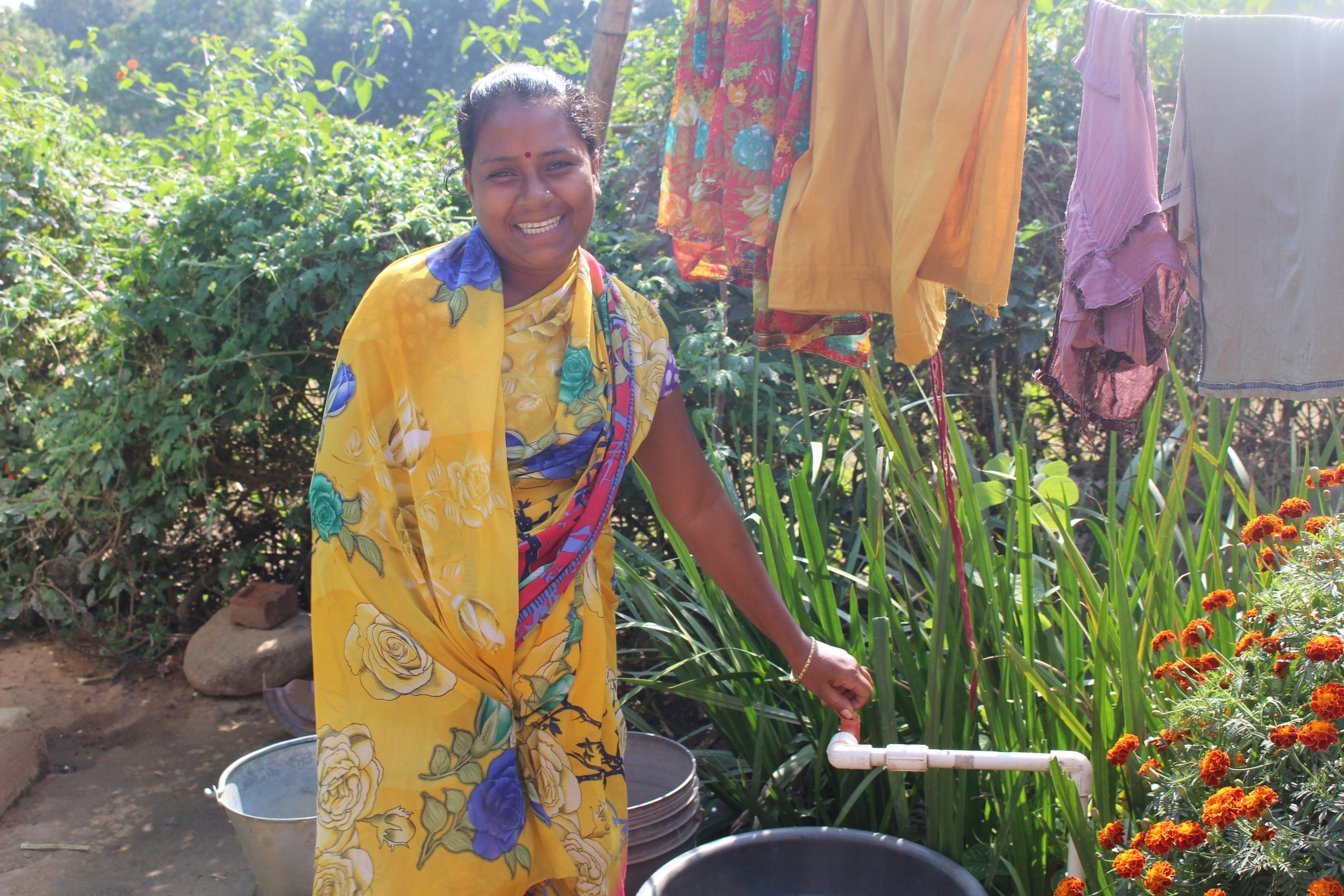Past Project: Safe Drinking Water Systems

Access to clean water and sanitation in India continues to be inadequate, resulting in poor health outcomes. Despite longstanding efforts by various levels of government to improve the access and affordability of safe drinking water, only 40% of Indians have access to piped water in their homes. Clean water is directly associated with adequate nutrition, as intestinal inflammation and infection due to drinking water contaminated with worms, parasites, viruses, and bacteria can lead to partial or complete malabsorption of essential nutrients and calories, in addition to life-threatening illnesses and dehydration.
Sustainable, Low-Cost Water Treatment Systems
TCI partnered with AguaClara in 2014 to provide clean drinking water technology for villages in India. AquaClara installed proprietary technology developed at Cornell University that was previously implemented with great success in Latin America.
The technology includes a filtration unit for removing suspended matter and a chemical dosing unit for removing fecal contamination, making it safe for drinking and cooking. Solar-powered pumps move the water from lowland wells to an elevated tank in the village and then into homes, all without using electricity or fossil fuels.
With assistance from Indian non-governmental organization PRADAN, four water treatment centers were established in Jharkhand, providing drinking water to 2,000 people. Following the success of the project in Jharkhand, AguaClara worked with the development organization Gram Vikas to bring its water treatment systems to villages in the eastern state of Odisha, where it built systems in three villages in Odisha, serving about 460 people in total.
Supporting Research
In addition to providing clean water to residents in Jharkhand, TCI’s partnership with AguaClara supported important research related to water, sanitation, and hygiene. The projects in Odisha and Jharkhand provided evidence of how innovative, low-cost technologies can address the problem of poor access to clean water.
In many households that lack piped water, family members—usually women and young girls—must fetch water from sources far from home. TCI studies in Jharkhand have revealed that households with piped water save an average of nearly 60 minutes per day on water collection, compared to households without them. The women in those homes increase the time spent in their primary occupation by 20% per day. Apart from being healthier, access to clean water in the home frees female family members to live more productive lives.
About AguaClara
A multidisciplinary program at Cornell University, AguaClara is dedicated to creating reliable, low-cost solutions to global water problems. In India and around the world, AguaClara designs plants that are gravity-powered, electricity-free, and scalable to fit the needs and size of any community.
AguaClara’s governance model is based on community ownership, democratic governance, and technology that is specifically designed for ease of operation and to encourage pride in ownership. They build implementation partner capacity and encourage the formation of a network of implementation partners that share best practices for sustainable implementation.

